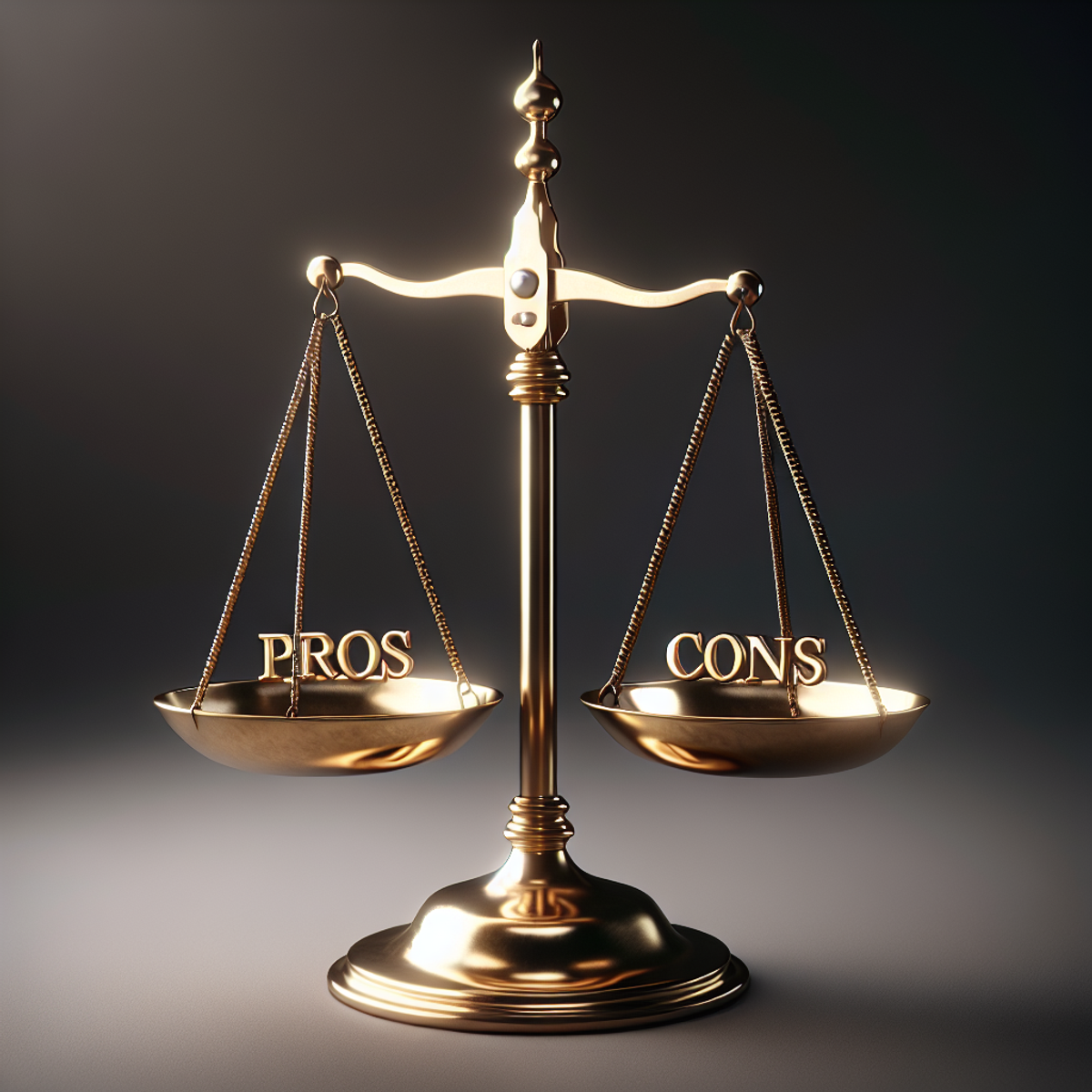The Ultimate Guide to Hiring High Ticket Sales Reps

Introduction
In the high-stakes world of business, high ticket sales reps play a pivotal role. These individuals are not your average salespeople; they specialize in selling premium products or services with contracts worth thousands or tens of thousands of dollars. With their strategic problem-solving skills, exceptional communication abilities, and deep product knowledge, they are the key players in closing lucrative deals for businesses.
Hiring high ticket closers can unlock significant benefits for your business:
- Increased Sales: Primarily, these experts bring a wealth of experience and specialized knowledge that can quickly ramp up your sales figures. They are adept at understanding client needs and offering tailored solutions that resonate with potential customers. Their professionalism and effective communication ensure your brand is represented consistently across all sales interactions.
- Stronger Client Relationships: High ticket closers are also instrumental in fostering strong relationships with high-value clients, thereby ensuring sustained business growth.
- Valuable Expertise: Their resilience and commitment to continuous learning make them an invaluable asset for any business aiming to boost its bottom line.
The Fluid Selling System™ for Hiring High Ticket Sales Reps
The strategies for hiring for high ticket sales reps are often complex and intricate, requiring a unique approach to ensure success. One such approach is the Fluid Selling System™, a transformative methodology that could revolutionize how you conduct high ticket sales.
Fluid Selling System™ is an innovative strategy that flips the traditional sales process on its head. Instead of pushing prospects to buy, it focuses on pulling them in by building trust, identifying needs, and offering value. This distinctive 5-step system has been designed to optimize your high ticket sales process effectively.
Step 1: Attracting Qualified Prospects Through Value-based Marketing
The first step involves attracting high-quality prospects through value-based marketing. To do this, you need to understand your target audience's needs and interests. You can use content marketing strategies such as blog posts, ebooks, and whitepapers to provide valuable information that attracts prospects and positions your brand as an industry expert.
For instance, if you're selling high-ticket coaching services, you might create a free ebook offering tips on personal growth or goal-setting. Prospects who download this ebook are likely interested in your coaching services, making them qualified leads.
Step 2: Building Trust and Rapport to Facilitate Higher Ticket Purchases
Building trust with potential clients is crucial in any sales scenario, but it's especially critical in high ticket sales where the financial stakes are higher. By demonstrating empathy and understanding their unique challenges and goals, you can develop a rapport with prospects. This connection extends beyond the transactional relationship and into the realm of genuine care for their success.
Practically speaking, this might involve taking time in your initial interactions to ask open-ended questions about their experiences and listen attentively to their responses. By showing genuine interest in your prospects' needs and concerns, you're more likely to establish a strong rapport that facilitates higher ticket purchases.
Step 3: Identifying Core Needs and Customizing Irresistible Solutions
Once you've built a strong rapport, it's time to identify your prospects' core needs. This step requires active listening and insightful questioning to uncover their deepest desires and challenges.
By understanding these needs, you can tailor your product or service to provide a solution that directly addresses their unique situation. This custom solution, which is designed to meet their specific needs, becomes an irresistible offer that they'll find hard to refuse.
Step 4: Overcoming Objections With Confidence and Integrity
One of the biggest hurdles in high ticket sales is overcoming objections. To do this efficiently, you need to anticipate potential objections and prepare responses that address them with confidence and integrity.
For example, if a prospect objects to the price of your high-ticket product, you could address this by emphasizing the value and return on investment they'll receive. The key is to handle objections honestly and transparently, focusing on the product's benefits rather than resorting to aggressive sales tactics.
Step 5: Sealing the Deal Through Effective Closing Strategies
The final step involves sealing the deal through effective closing strategies. In high ticket sales, closing often requires a delicate balance between persistence and patience.
A successful closing strategy might involve summarizing the benefits of your offer, reinforcing how it meets the prospect's needs, and then inviting them to take action. By guiding them towards making a decision rather than pressuring them into one, you're more likely to close the sale successfully.
In essence, the Inverse Selling System™ provides a comprehensive blueprint for conducting high ticket sales with integrity and effectiveness. By following this 5-step system, you can maximize your sales success while building lasting relationships with your high-value clients.
Outsourcing vs In-house: Choosing the Right Approach for Hiring High Ticket Sales Reps For Your Business

When it comes to high ticket sales, a significant decision you'll need to make is whether to build an in-house team or outsource these services. This decision can significantly impact your business's operation, effectiveness, and bottom line. Let's delve further into these two approaches.
Outsourcing High Ticket Sales Reps
The primary advantage of outsourcing high ticket sales lies in accessibility. By opting for this route, you gain immediate access to highly experienced closers who are experts in sealing high-value deals. These professionals come with a wealth of experience, honed skills, and a track record of success that might be challenging to find when hiring for an in-house team.
A cost-related benefit associated with outsourcing is its economic efficiency. For businesses that may not have the resources to hire a full team and cover all associated costs (such as salaries, benefits, training, etc.), outsourcing can provide a more affordable alternative. Instead of bearing these expenses, you pay for the services rendered, which can be more manageable from a financial standpoint.
Moreover, outsourcing bypasses the need for extensive training and onboarding processes. Your business can hit the ground running with a team of seasoned closers adept at navigating high-stakes sales scenarios.
Small to medium-sized businesses may find outsourcing particularly beneficial due to resource constraints. However, larger enterprises with substantial resources may still find value in this approach if they seek specialized expertise or require rapid deployment of a sales force without the accompanying administrative burdens.
Building an In-house Sales Team
On the other hand, building an in-house sales team requires more investment but allows for greater control over your sales process. With an internal team, you can nurture a deep understanding of your products or services and create tailored strategies that align with your business's vision and values.
An in-house team offers the potential for strong alignment with your company culture and brand. This synergy can translate into a more personalized and consistent customer experience, which is invaluable in high-ticket sales.
Larger enterprises may find the investment in an in-house team more feasible and rewarding. They typically have the resources to attract top talent, provide comprehensive training, and foster a high-performing sales culture.
Weighing the Pros and Cons of Hiring High Ticket Closers

The decision between outsourcing and building an in-house team isn't straightforward. It ultimately depends on your specific circumstances, resources, and strategic objectives. Here are some factors to consider:
- Expertise: Does your business have access to skilled high ticket closers? If not, outsourcing can fill this gap.
- Cost: Can your business afford the cumulative costs of hiring, training, and maintaining an in-house team?
- Control: Do you prefer direct control over your sales process, or are you comfortable entrusting it to an external team?
- Flexibility: Do you need the flexibility to scale up or down quickly based on market conditions?
Your answers to these questions should guide you towards the best fit for your business. After all, whether outsourced or in-house, the goal remains the same: closing those high ticket deals effectively.
The Hiring Process for High Ticket Closers
When you're looking to hire high ticket closers, the way you go about it can have a big impact on building a team that drives your business forward. This process has several important steps that are designed to help you find the best candidates for high ticket sales roles.
Key Steps in the Hiring Process
- Clearly Define the RoleStart by outlining exactly what your high ticket closers will be responsible for, what goals they should achieve, and what you expect from them. Be specific about the products or services they'll be selling and who their target customers are.
- Create a Detailed Job DescriptionYour job posting should accurately describe the complex nature of high ticket sales and highlight the need for advanced skills in negotiation, building relationships, and strategic thinking.
- Strategically Find CandidatesUse specialized job platforms, industry networks, and referrals to locate candidates who have experience in high ticket sales.
- Thoroughly Review ApplicationsTake the time to carefully look through resumes and cover letters, paying attention to any past successes in similar positions and how well they align with what your company needs.
Criteria for Selection
During the selection process, evaluate candidates based on a clear set of criteria:
- Experience Level Candidates should have a proven track record of selling high-value products or services. Look for evidence of consistent success over time.
- Sales Achievements Analyze their past performance metrics such as average deal size, length of sales cycles, and meeting or exceeding quotas.
- Industry Knowledge Ideal candidates will have a deep understanding of your industry and be able to talk confidently about current market trends and challenges customers face.
Interviewing High Ticket Closers
The interview stage is crucial for determining whether a candidate is not only qualified but also a good fit for your team:
- Use Behavioral Interviews Ask questions that prompt the candidate to talk about how they've handled specific sales situations in the past, with a focus on their problem-solving and negotiation abilities.
- Role-playing Exercises. Set up scenarios where candidates have to sell something to see how well they handle objections, build rapport with potential clients, and close deals.
- Assess Cultural Fit. Make sure the candidate's values align with your company's beliefs and sales culture.
Ask About Their Sales Philosophy
- Find out what their approach is when it comes to high ticket closing; this can give you valuable insights into whether they'll be a good fit for your organization.
Evaluate Emotional Intelligence
- High ticket closers need to be able to understand and connect with clients on an emotional level in order to build strong relationships.
By taking these steps seriously and using specific criteria to evaluate candidates during interviews, you can ensure that the people you hire are not only skilled at closing high-value deals but also have the potential to make a positive impact on your business's growth. Choosing the right individuals could truly transform your company's revenue stream.
Training and Onboarding Strategies to Set Your High Ticket Closers Up for Success

A strong onboarding process is essential in setting your high ticket closers up for success. This process should give them the tools, guidance, and encouragement they need to adapt quickly and start closing deals.
Designing an Effective Onboarding Process When Hiring High Ticket Sales Reps
Consider the following key elements when designing your onboarding process:
- Comprehensive introduction to the company's vision, mission, culture and sales goals
- Detailed overview of the product or service they will be selling
- Mentorship program that pairs new hires with experienced high ticket closers
- Access to necessary resources such as sales scripts, customer personas and FAQs
- Regular check-ins with sales managers during the first few weeks
The Importance of Ongoing Training
It's important to understand that training for high ticket sales reps is not a one-time event but an ongoing process. Sales reps should continuously improve their skills, stay updated on industry trends, and adapt to changes in the market.
Implementing ongoing training programs can include:
- Regular product training sessions to keep reps updated about product features and benefits
- Sales technique workshops focusing on advanced persuasion techniques, negotiation skills and effective closing strategies
- Industry knowledge updates so that your closers are always aware of the latest trends that could impact your business or customers
Building Essential Skills through Comprehensive Training
An important part of your ongoing training should also include a comprehensive training program. This program needs to cover essential high ticket sales skills, objection handling tactics, and effective closing techniques.
Key modules in this training program could include:
- Understanding buyer psychology
- Building rapport and trust with high-value clients
- Mastering questioning techniques
- Handling objections confidently
- Closing techniques that seal the deal
Regular Assessment for Continuous Improvement
To ensure your high ticket closers are consistently performing at their best, it's necessary to regularly assess their performance. This gives you the opportunity to provide them with constructive feedback and identify areas for improvement.
Incorporate these practices for regular assessment:
- Monthly performance reviews where you assess the number of deals closed, average deal size, and customer feedback
- Quarterly 360-degree feedback sessions where you gather insights from peers, subordinates and superiors
- Annual appraisals where you discuss career progression, training needs and set goals for the next year
The Role of Training in Developing Strategic Advisors
A comprehensive training program plays a crucial role in equipping high ticket closers with the skills and knowledge they need. It's not just about teaching them how to sell; it's about shaping them into strategic advisors who can help your customers make important decisions.
By investing in their development, you'll ensure they're well-prepared to close deals that drive significant revenue growth for your business.
Managing and Motivating Your High Ticket Sales Reps
The key to hiring a successful high ticket sales team lies in effective management and the right motivation strategies. Harnessing the potential of your team is a critical aspect of any sales operation, particularly when dealing with high-value transactions. In this section, we delve into practical ways to manage and motivate your high-performance team of high ticket closers.
Managing Your High Ticket Sales Team
To effectively manage your high ticket sales team, it's important to establish clear expectations and regularly track their performance. By incorporating these practices, you can ensure that your team stays focused and motivated to achieve their targets.
Regular Performance Tracking
Implementing regular performance tracking allows you to monitor individual and collective productivity, identify areas for improvement, and recognize achievements. This can be done through weekly or monthly performance reviews where you assess key metrics such as deals closed, average deal size, and customer feedback.
Setting Clear Expectations
Ensuring that your team understands their targets and what is expected from them is crucial for their success. By providing clarity of goals, you can help them stay focused on achieving the desired results.
Motivating Your High Ticket Sales Reps
Motivation plays a vital role in driving the performance of your high ticket sales team. Here are some strategies to keep them motivated and engaged:
- Recognition and Rewards: Acknowledge and celebrate achievements to boost morale and create a positive work environment.
- Ongoing Training and Development: Invest in their continuous learning by providing training opportunities that enhance their skills and knowledge.
- Supportive Environment: Foster a supportive culture where individuals feel valued and supported in their professional growth.
Hiring High Ticket Closers
When it comes to hiring high ticket closers, there are different approaches you can take. You may choose to outsource this function to a specialized "done for you" closing service or build an in-house sales team. Let's explore the pros and cons of each approach.
Outsourcing High Ticket Sales Reps
Outsourcing your high ticket closers can provide several benefits. You can tap into the expertise of experienced professionals who specialize in closing high-value deals. This allows you to leverage their skills and knowledge without the need for extensive training and onboarding.
However, outsourcing may come with certain drawbacks. You may have less control over the sales process and customer interactions. Additionally, the cost of outsourcing services may be higher compared to building an in-house team in the long run.
Building an In-house Sales Team
Building an in-house sales team gives you more control over the sales process and customer interactions. You can align them closely with your brand messaging and ensure consistent representation of your business.
However, building an in-house team requires significant investment in recruiting, training, and ongoing management. It may take time to find and develop high ticket closers who are a good fit for your organization.
Weighing the Pros and Cons
When deciding on the right approach for hiring high ticket sales reps, consider factors such as cost, control, expertise, and scalability. Assess your business needs and resources to determine which option aligns best with your goals.
Conclusion
Managing and motivating your high ticket sales team is essential for driving revenue growth and achieving success in high-value transactions. By implementing effective management strategies, setting clear expectations, and providing ongoing support, you can empower your team of high ticket closers to excel in their roles. Whether you choose to outsource or build an in-house team, make sure to weigh the pros and cons to make an informed decision that aligns with your business objectives.
Tracking Performance Regularly
One of the best practices for managing a high-performance sales team is to implement regular performance tracking. This allows you to keep an eye on individual and collective productivity, identify areas for improvement, and recognize achievements.
Set Clear Expectations
Ensure that your team understands their targets and what is expected from them. Clarity of goals can lead to focused efforts.
Regular Reviews
Conduct weekly or monthly performance reviews. This should include assessing the number of deals closed, client feedback, and other relevant metrics.
Feedback Loops
Constructive feedback plays a crucial role in the development of a sales rep. Provide real-time feedback on their performance, giving praise where it's due and offering solutions where there are gaps.
Motivational Strategies

Motivation is the fuel that drives sales reps towards success. It's essential to keep your high ticket closers engaged and driven to achieve results.
Incentive Programs
Develop incentive programs such as bonuses or commissions for meeting or exceeding targets. These not only motivate but also reward hard work.
Recognition
Recognize achievements - no matter how small they may seem. Public recognition in front of peers can boost morale significantly.
Career Growth Opportunities
Show your sales reps a clear path for advancement within the company. This encourages long-term commitment and drive to succeed.
Keeping your high ticket closers motivated isn't just about financial incentives; it's about creating an environment where they feel valued, challenged, and excited about their work.
Remember, managing a high performance high ticket sales team involves constant tuning and adaptation. Stay flexible and ready to adjust your strategies based on the needs of your team and market dynamics. This approach will not only help you build a strong, motivated team but also ensure that they perform at their best, boosting your business's bottom line.
Maintaining a Strong Sales Culture and Ensuring Consistent Brand Representation
Cultivating a robust sales culture is crucial for any team aiming to excel in high ticket sales. High ticket closers are not just skilled at sealing deals; they also play a vital role in nurturing this culture. By providing training and guidance, they ensure that every member of the sales team understands and follows the company’s goals and core values.
1. Training and Guidance
High ticket closers can lead by example, offering insights into the nuances of closing high-value deals. They can host workshops or mentorship sessions to instill best practices among newer reps.
2. Alignment with Goals
Regular strategy discussions help maintain focus on collective targets, ensuring all sales efforts contribute towards common objectives.
When it comes to brand representation, consistency is key in building trust with clients. High ticket closers are crucial in this regard as they often serve as the face of your brand during negotiations.
1. Understanding Brand Messaging
High ticket closers should be well-versed in your brand’s language and ethos. This ensures they articulate value propositions that resonate with your brand's identity.
2. Effective Communication
Mastery over the brand narrative enables closers to communicate effectively with potential clients, ensuring clarity and consistency in every interaction.
With a high ticket closer on the team, other sales members can dedicate their efforts to nurturing client relationships and adding value at different stages of the customer journey. The closer then steps in to finalize deals while upholding the brand integrity, ensuring a seamless experience for prospects.
Specialized Role Focus
While other team members engage clients at various touchpoints, high ticket closers concentrate on leveraging these relationships when it matters most — at the closing stage.
The impact of a strong sales culture on the success of your closers cannot be overstated. It fosters an environment where continuous learning, mutual support, and a commitment to excellence are norms that drive everyone towards exceptional performance.
1. Continuous Learning
Encourage knowledge sharing within the team to keep abreast of industry trends and refine selling techniques.
2. Supportive Environment
A culture that celebrates wins and constructively reviews losses promotes resilience and determination.
Ensuring consistent brand representation across all stages of the sales process helps build lasting trust with high-ticket prospects. Trust is a foundational element that influences decision-making at this level; consistency reinforces reliability.
1. Trust Building
Consistent messaging throughout the sales cycle reinforces the perception of reliability and professionalism critical for high-ticket transactions.
2. Reliability
Prospects need to feel assured that their investment is managed by a dependable organization — consistent branding underlines this assurance.
A dedicated high ticket closer becomes a linchpin in maintaining sales culture integrity while also being a custodian of brand representation. Their role extends beyond closing deals; they embody the values and aspirations of your company in every pitch they make and every relationship they cultivate.
Conclusion
Hiring a high ticket closer can be a game-changer for your business. These experts bring more than just the ability to close big deals - they possess a deep understanding of how clients think, excel in strategic planning, and have exceptional communication skills.
Here's why finding the right high ticket closer is crucial:
- Guiding the sales team: They play a vital role in maintaining a strong sales culture by providing guidance and mentorship to other team members.
- Effective brand representation: They are skilled at conveying your brand's message and values to potential clients, ensuring consistent brand representation.
- Taking the load off the sales team: By handling the responsibility of closing deals, they free up time and energy for your sales team to focus on building relationships and generating leads.
It's important to remember that hiring isn't just about filling a position - it's an investment in someone who can significantly contribute to your company's success.
When you bring a high ticket closer on board, you're not just hiring someone who can sell expensive products. You're adding a strategic problem-solver who actively listens, asks insightful questions, and provides customized solutions based on client needs. This ability to connect on a deeper level has the potential to turn prospects into loyal customers and drive substantial revenue growth.
While the process of finding and hiring a high ticket closer may seem overwhelming, the potential benefits for your business are undeniable. It's time to overcome any hesitations or doubts and take action towards unlocking new opportunities for growth.
Remember: talent is like compound interest - the more you invest in it, the greater the returns. So don't hesitate; start exploring the world of high ticket closers today and watch your business thrive!
Ready For Your Commission-Only High Ticket Sales Team?
We are ready to SCALE your company, let's see if we're a fit.

